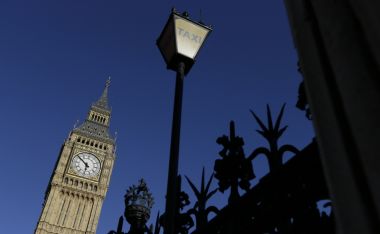Vatican's UK envoy criticises 'Assisted Dying' bill: 'Public opinion can be easily manipulated'

In a rare move, the Vatican's envoy to the UK has called on Catholics to speak out against Labour Peer Lord Falconer's assisted dying bill
The Apostolic Nuncio to Great Britain, Archbishop Antonio Mennini, addressed a plenary meeting of the Bishops' Conference of England and Wales earlier this week where he urged the Church to "make its voice heard" on this matter.
Quoted in the Catholic Herald, Archbishop Mennini said: "I cannot fail to express concern about the Assisted Dying Bill which will be discussed in the next few months in the House of Lords. This is a very sensitive issue, which required a serious commitment from us to protect and defend human life as a gift from God."
He repeated the words used by Pope Francis on 28 July 2013, the annual English and Welsh Catholic's 'Day of Life': "Even the weakest and most vulnerable, the sick, the old, the unborn and the poor, are masterpieces of God's creation, made in his own image, destined to live forever, and deserving of the utmost reverence and respect."
He also criticised the use of the term "assisted dying", saying that commentators should be honest about the fact that they are describing a form of euthanasia.
"Unfortunately we know from experience how easily public opinion can be manipulated, especially using 'emotional' arguments that try to move compassionate sentiments," he said.
"But once we open this Pandora's box we know as well the horrible consequences that follow."
Archbishop Mennini also suggested that the issue would be a litmus test of whether the UK could truly consider itself a "Christian country" as David Cameron recently claimed in the Church Times.
David Cameron and Nick Clegg oppose Lord Falconer's bill, but both have also offered their MPs free votes on the issue when it comes to the House of Commons.
The 1961 Suicide Act makes it a crime to assist someone to end their own life, with a sentence of up to 14 years in prison. However, recent sentencing guidelines have encouraged judges to be lenient on those who could be argued to have been acting out of mercy.
Sarah Wootton, chief executive of the pro-euthanasia campaign group Dignity in Dying, criticised the Archbishop's comments in The Telegraph.
"It is not acceptable for the Archbishop to impose his views, based on principle, on others who do not share them and by doing so cause unnecessary suffering for the small but significant number of people who want the option of an assisted death when palliative care is not enough," she said.
"The Archbishop is on the wrong side of British public opinion not because it has been manipulated but because people listen to those who are terminally ill and their call for a right to choose when they die."
Lord Falconer's bill has only gone through its first reading in the House of Lords. The second reading is yet to be scheduled.











